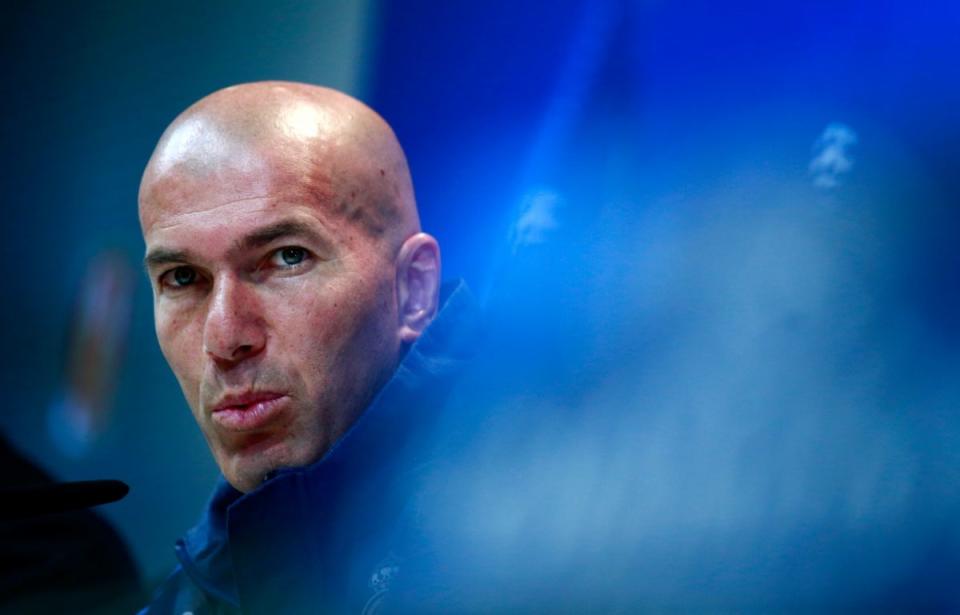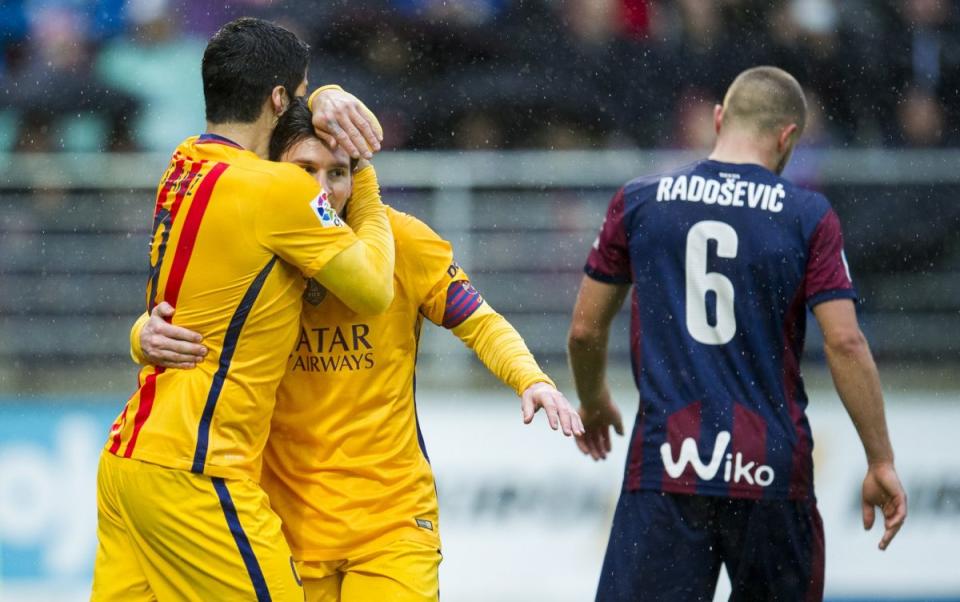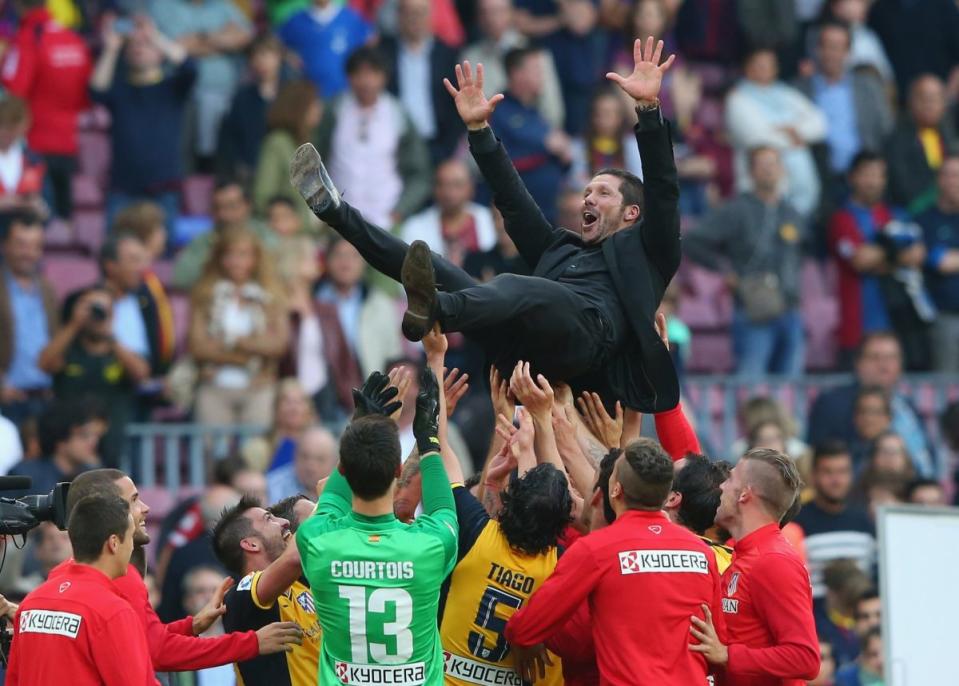Seven pertinent questions for the new La Liga season

Is it the world’s best league? Is it merely better at the top end than the Premier League? Who cares. La Liga is back and all our lives are better for it. So let’s celebrate, look ahead and ask some pertinent questions about the upcoming year.
How will Zidane fare in his first full year?
As a player, Zizou arrived at Real Madrid at the height of his powers, already established as one of the best playmakers in the world. He retired there as one of the best ever. But as a manager, he took over in January as a total newbie, even though he’d held various roles at the club for years – including reserve team manager.
The club’s quick-triggered despot chairman Florentino Perez let him stay on largely because Zidane landed the club’s 11th Champions League title and because it’s hard to argue with the Frenchman’s 77.78 percent winning percentage (21-2-4) – although Perez has gotten into such arguments in the past.
Now Zidane gets a full season to deploy his plans – provided he doesn’t lose a few games in a row – and we’ll learn if he might be as good a manager as he was a player.
Will the new TV deal even the playing field?
There’s a reason Spain has two juggernaut clubs and then everybody else. It’s because Real and Barcelona negotiated their own TV deals, as did every other club. As such, the disparity in bargaining power only made the financial gap wider and wider. They alone took about half of all broadcast revenue earned by the entire league.
Now, La Liga negotiates contracts collectively – by the order of a new Spanish law – and the proceeds of a new domestic deal worth almost $3 billion over three seasons will be distributed more evenly, according to performance. That will likely mean a pay cut of sorts for the duopoly at the top and a hefty increase for everybody else.
There should follow a new competitiveness in a league whose disparity is best illustrated by stadium capacity. Barca can seat 99,300 at the Camp Nou; Real 88,000 at the Bernabeu. Meanwhile, at the other end of the spectrum, newly promoted Leganes has a capacity of just 8,000. And Eibar can accommodate only 6,000.

Can anyone close the gap?
But how long will it take for that gaping chasm to be closed? Spain’s second-tier clubs, Atletico Madrid, Sevilla and Valencia, have been able to bring in good talent in recent years, thanks to their savviness on the transfer market. So, at times, have Villareal and Malaga. But the gap between third and fourth place last year – between Barca, Real, Atletico and all the rest – was 24 points.
That’s an awful lot of ground to make up as the big clubs continue to drive more revenue in areas other than broadcast rights.
How much further can Cholo Simeone take Atletico?
Speaking of the Mattressmakers, their joining Barca and Real at the top can be largely attributed to the enormity of Simeone’s managerial gifts. It isn’t always pretty, but he has fashioned a ruthlessly effective machinery from Atletico’s relatively modest means. The yield has been two Champions League finals and a La Liga title in three years.
He has rebuffed chances to work elsewhere, sticking around at his beloved club even as richer and more glamorous teams have come knocking. But the question is how long he can keep it up with his demanding playing style and perpetual fight against overwhelming economics.

Is the Galactico era finally over?
Back to Real, where it was jarring to hear Perez declare Juventus’s Paul Pogba, the big prize in the summer’s transfer market, too expensive. This from the man running the club that did three of the five most expensive transfers ever and has set the transfer fee world record five times – four of which were sealed by Perez himself.
Real and Barca – which bought the other two in that top five – are still the two highest-earning clubs in the world. But a new reality might be setting in. Spain’s new broadcast deal, while almost doubled the last one, is still only worth about a third of the Premier League’s. And that’s not counting international rights, where the EPL does far better as well. Could Real have possibly been priced out of the market for superstars that it set itself? Or might they finally favor more sensible transfers? Astonishingly, they might wind up as net sellers in this summer transfer market.
Did Barca manage to build some depth?
Every year, the issue is more or less the same. Barca’s starting lineup is unmatched, but when the season drags into March, April and May, it gets ragged from the congestion of fixtures. The reserves who step in around that time aren’t quite up to snuff though. That’s partly because Barca prefers bringing through youth players and partly because of the recent transfer ban. But all the same, the drop-off to the understudies when the regulars have needed a rest has hurt them frequently.
Over the summer, Barca has brought some young players back from loan and signed young French defenders Samuel Umtiti and Lucas Digne. Then it splashed out on Portuguese central midfielder Andre Gomes. But, absent some coverage up front, is it finally enough?
How long can Messi and Ronaldo keep it up?
I don’t want to talk about it. You don’t want to talk about it. Nobody wants to talk about it. But we have to confront this truth all the same: there will come a day when Lionel Messi and Cristiano Ronaldo won’t be what they are now anymore. In fact, Ronaldo has already become something almost entirely different, gradually morphing from a dribble-happy winger to a crouching poacher, lurking in the box, looking to capitalize from the preparatory work he once did himself but now leaves to other, younger men.
Here’s another uncomfortable truth: Messi has just turned 29. Ronaldo will be 32 well before the season is out. They are highly professional and enormously durable athletes. But players who dominate as young as Messi did tend to fall off right around the age he is now. Ronaldo, meanwhile, is nearing the end of the prime for just about any athlete.
They have each scored at least 26 league goals for seven years running. We’re not saying the end is nigh, but their inevitable aging bears watching.

 Yahoo Sports
Yahoo Sports 

